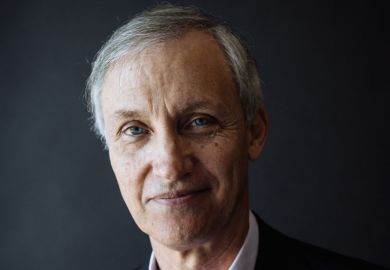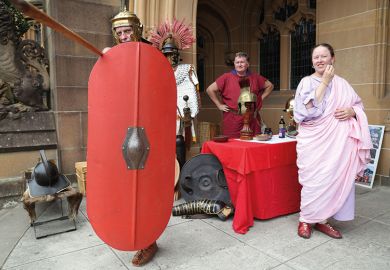Australia’s row over a rejection of philanthropic funding has escalated dramatically, with the Australian National University chastising a humanities centre over its “extraordinarily prescriptive micromanagement”.
In an opinion piece published in The Australian on 26 June, ANU’s leadership details how negotiations with the philanthropically backed Ramsay Centre went sour.
The article accuses Ramsay of seeking a “controlling influence” on curriculum design and staff appointments, and of insisting on the removal of “academic freedom” from a statement outlining the programme’s shared objectives.
It also says that the centre failed to alleviate concerns prompted by its board member and former prime minister Tony Abbott, who wrote that Ramsay’s chief executive and academic director would have a hand in staffing and curriculum decisions.
The article was written by chancellor Gareth Evans, a former Labor foreign minister, and vice-chancellor Brian Schmidt, a Nobel laureate. It says that, if Ramsay’s conditions had been less onerous, ANU could have reached agreement in less than two days.
“The university has never accepted gifts with such restrictions as demanded by Ramsay, and under our watch as chancellor and vice-chancellor never will,” it says.
“As the Ramsay Centre seeks other partners, either it will have to change its approach and trust its partners or be limited to a university willing to make concessions on academic autonomy.”
On 1 June, the ANU withdrew from its six-month negotiations with Ramsay, in the process turning its back on about A$8 million (£4.5 million) in funding for scholarships and academic recruitment.
Its move came after staff and students had complained that the proposed degree would take a “triumphalist” approach to Western civilisation. But Professor Schmidt insisted that the offer was rejected to protect academic autonomy, and the decision had nothing to do with the degree’s subject matter.
Until now, ANU has refused to go into details about the threat to its autonomy, citing the confidentiality of the negotiations. It has abandoned this approach after weeks of critical media reports.
In a statement, a Ramsay spokeswoman said that the centre had never sought a controlling influence or veto in curriculum design and staff appointments.
“Discussions between the negotiating teams were amicable and engaging for us all,” the statement says. “In April, the ANU posted on its website a list of frequently asked questions in relation to the partnership. It is clear from these FAQs that final control of curriculum and hiring would be in the hands of the university.”
The FAQ document says that curriculum recommendations would have been made by the partnership management committee, which would consist of two academic staff from Ramsay and two from ANU, with proposals considered through the “normal ANU academic processes”.
It also says that hiring decisions would have been made by a selection committee with a majority of ANU nominees.
The university said that, since it had posted the FAQ document, it had become clear that “there were major differences over the role the centre expected to play after any ANU approval processes had been undertaken”.
It said that these differences had become evident in a dispute over the degree’s name. It added that Ramsay had “sought to have the partnership management committee veto the ANU members of the selection panel”.
Register to continue
Why register?
- Registration is free and only takes a moment
- Once registered, you can read 3 articles a month
- Sign up for our newsletter
Subscribe
Or subscribe for unlimited access to:
- Unlimited access to news, views, insights & reviews
- Digital editions
- Digital access to THE’s university and college rankings analysis
Already registered or a current subscriber?










